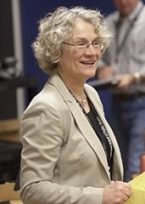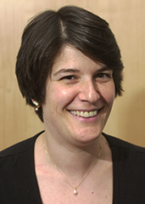Into Practice, a biweekly communication distributed from the Office of the Vice Provost for Advances in Learning to active instructors during the academic year was inspired by a successful 2012 HILT grant project. The e-letter highlights the pedagogical practices of individual faculty members from across Schools and delivers timely, evidence-based teaching advice, contributing to and strengthening a University-wide community of practice around teaching.
Below is a catalog of all the Into Practice issues sorted by the publication date. To subscribe to Into Practice, please sign-up via our Mailing List page.
-

Defining learning objectives: Pre-semester, all semester
José A. (Tony) Gómez-Ibáñez, Derek C. Bok Professor of Urban Planning and Public Policy, who holds appointments at the GSD and HKS, defines the learning objectives of his course prior to the start of the semester and references them to frame each individual class session: “I use the first five minutes to place each class in the course – ‘The last class we talked about X and today we want to see how those ideas might apply to Y.’”
-

Putting students at the helm of their learning experience
Jon Hanson, Alfred Smart Professor of Law, saw an opportunity to improve learning by putting students in the driver's seat.
-

Getting the most out of classroom space
Melissa Franklin, Mallinckrodt Professor of Physics, rethought her teaching by rethinking her classroom. She created a flexible classroom, “the SciBox,” to encourage active learning, greater engagement, and student ownership.
-

Feedback vs. evaluation: Getting past the reluctance to deliver negative feedback
When Dr. Keith Baker, Associate Professor of Anaesthesia at Harvard Medical School and Director of the Anesthesia Residency Program at Massachusetts General Hospital, gives medical residents feedback, he emphasizes a “learning orientation” (where the goal is mastery), rather than a “performance orientation” (where the goal is validation of abilities).
-

Learning from learning management systems: New ways to engage students through Canvas
Arthur Applbaum, Adams Professor of Democratic Values, Quinton Mayne, Assistant Professor of Public Policy, and Christopher Robichaud, Lecturer in Ethics and Public Policy piloted the new University-wide learning management system, Canvas, in their spring 2015 courses at the Harvard Kennedy School.
-

Elevating class conversation: Taking a case-based approach
Nancy Kane, Professor of Management and Associate Dean of Case-based Teaching and Learning at the Harvard T.H. Chan School of Public Health, trains instructors on using the teaching case to lead effective course discussions.
-

Devices in the classroom? Things to consider
Alison Simmons, Samuel H. Wolcott Professor of Philosophy, made a decision in 2012 to include a policy in all her syllabi stating that electronic devices be put away during class time.
-

Communicating course culture: Building on the syllabus
Karen Brennan, Assistant Professor at the Harvard Graduate School of Education, designs her syllabus for T550: Designing for Learning by Creating to not only communicate the plan for the course, but to introduce students to the course culture.
-

The hiccups, humility, and benefits of deciding to flip a course
Margo Seltzer, Herchel Smith Professor of Computer Science, flipped part of her course, CS161, “Operating Systems."

